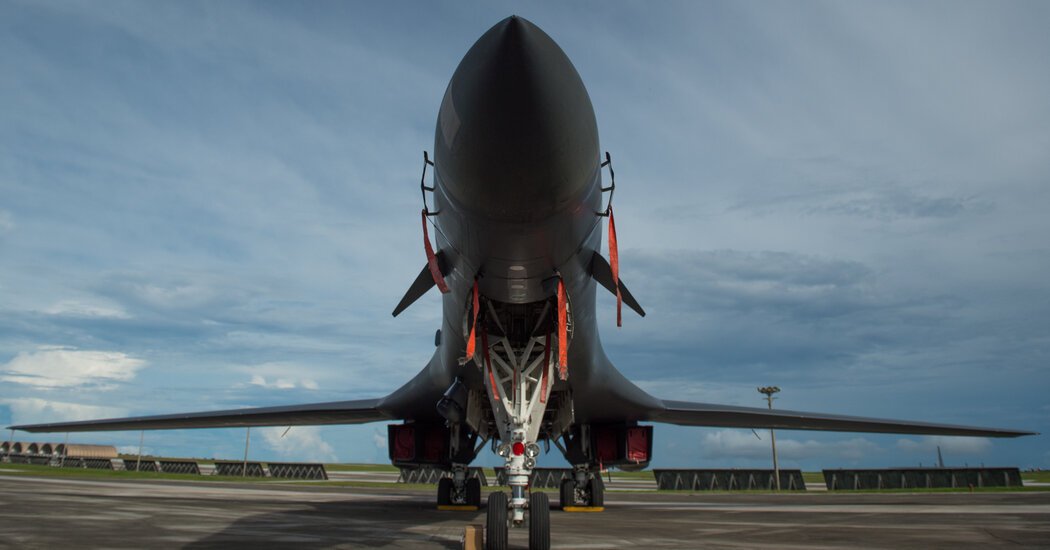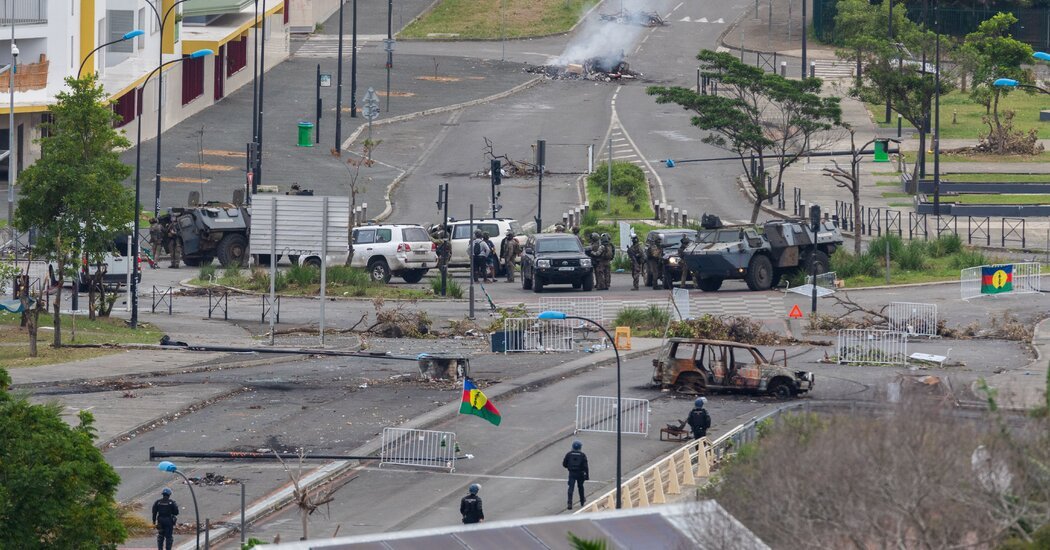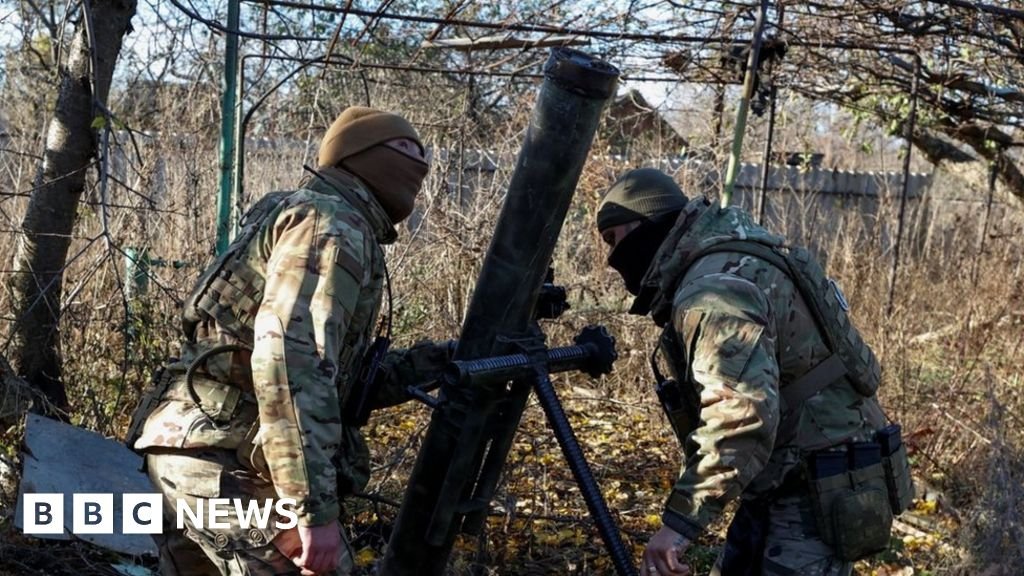A senior Biden administration official warned on Friday that “absent a change” in nuclear strategy by China and Russia, the United States may be forced to expand its nuclear arsenal, after decades of cutting back through now largely abandoned arms control agreements.
The comments on Friday from Pranay Vaddi, a senior director of the National Security Council, were the most explicit public warning yet that the United States was prepared to shift from simply modernizing its arsenal to expanding it. They were also a warning to President Vladimir V. Putin of Russia about the likely U.S. reaction if the last major nuclear arms control agreement, called New START, expires in February 2026 with no replacement.
Mr. Vaddi, speaking at the annual meeting of the Arms Control Association, a group that advocates limits on nuclear weapons, confirmed what officials have been saying in private conversations and closed congressional testimony for more than a year. It is the inevitable outgrowth, they have argued, of China’s rapid nuclear expansion and Russia’s repeated threats to use tactical nuclear weapons in Ukraine.
But it would be an epochal shift, and one fraught with dangers that many Americans thought they had left behind at the end of the Cold War and the collapse of the Soviet Union.

Fifteen years ago, President Barack Obama outlined a vision of moving toward a world without nuclear weapons, and he took steps to reduce their role in American strategy and defenses. While the nation’s nuclear complexes were improved and made safer, and old weapons were swapped out for more reliable or updated versions, the United States insisted it was only “modernizing” its arsenal, not expanding it.
As vice president in the Obama administration, President Biden became the spokesman for this strategy.
At the time, China was still maintaining its “minimum deterrent” policy, which dates back to its first nuclear test in 1964, and Mr. Putin appeared to have little interest in fiscally ruinous arms races. That has now changed.
China is on a path to match the number of American and Russian deployed nuclear weapons by 2035, according to the Pentagon’s public estimates. Mr. Putin has fixated on unusual weapons, including an undersea nuclear torpedo that could be launched across the Pacific to destroy the West Coast of the United States. And the United States has warned in recent months that Russia has a program underway to put a nuclear bomb into orbit.
There have been no discussions with Russia since it invaded Ukraine about negotiating a replacement for New START, which limits each country to 1,550 deployed strategic nuclear weapons, the kind that can be launched from one continent to another.
China has been unwilling to engage in deep nuclear talks with the United States, making it clear that it is not interested in arms control until its own arsenal is comparable to that of the two biggest nuclear powers. (Britain, France, India, Pakistan, Israel and North Korea all have arsenals of their own, though with much smaller numbers.)
While the Biden administration has not abandoned its rhetorical support of a world without nuclear weapons, officials have acknowledged that the prospects of new arms control deals are now so remote that they have to think about new strategies.
Mr. Vaddi said the development of the B61-13 gravity bomb, a nuclear weapon meant to be used against hardened and large military targets, was an example of the kind of projects the United States would pursue.
For now, the United States is improving, not expanding its nuclear arsenal. But Mr. Vaddi made clear that could change.
“Absent a change in the trajectory of the adversary arsenal, we may reach a point in the coming years where an increase from current deployed numbers is required, and we need to be fully prepared to execute if the president makes that decision,” he said.
The United States remains ready to pursue arms control agreements to reduce nuclear threats by “limiting and shaping” adversaries’ nuclear forces, Mr. Vaddi said. And citing the history of separate diplomatic tracks for such agreements, he suggested Russia’s war in Ukraine would not be a barrier to a discussion.
But he said Russia’s rejection of talks to a successor agreement to New Start has “cast a shadow” over diplomatic issues.
“At least in the near term, the prospects for strategic arms control are dim,” he said.
A year ago, at the same conference, Jake Sullivan, the national security adviser, pledged a renewed effort to bring China into arms control talks. Since that speech, the United States has tried to engage the Chinese on nuclear safety issues and recently conducted the first talks, in Geneva, to address whether it would be possible to reach an accord that artificial intelligence should never control nuclear weapons, among other limitations.
That meeting was preliminary, and it is unclear if others are to follow. While China has urged the United States to adopt what it calls its “no first use” policy for employing nuclear weapons, it has not engaged substantively with the American proposals.
One of the complications of the current nuclear environment, administration officials say, is the potential that Russia and China may coordinate their nuclear policies, part of the “partnership without limits” that Mr. Putin and Xi Jinping, the Chinese leader, announced in 2022.
The failure of Russia and China to engage in meaningful negotiations, Mr. Vaddi said, was “forcing the United States and our close allies and partners to prepare for a world where nuclear competition occurs without numerical constraints.”
Modernizing the American nuclear arsenal, he argued, will give both Russia and China an incentive to go back to the negotiating table and put Washington at a stronger place in those talks.
“We need to persuade our adversaries that managing rivalry through arms control is preferable to unrestrained competition,” he said.










